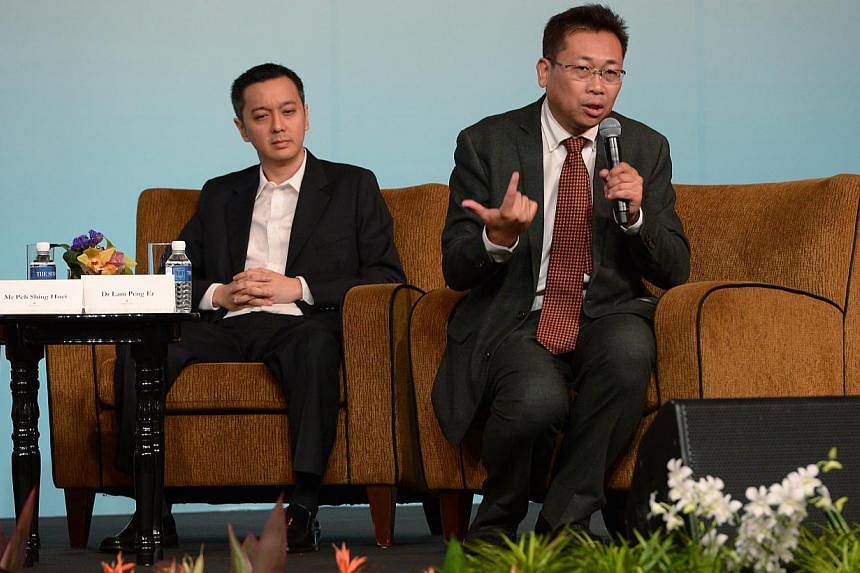SINGAPORE - As Japan's economic policies, or Abenomics, take shape, the country is a "canary in the coal mine", a harbinger for things to come for the euro zone that is facing the risk of deflation, said Dr Lam Peng Er from the East Asian Institute (EAI).
"There are lots of comments in Europe asking the questions 'will the euro zone suffer from zero interest rate and face the danger of deflation? will the Europeans engage in quantitative easing like the Americans?" said Dr Lam.
"Canary in the mine is in a way what Abenomics is doing, it may be a reference point for the euro zone which may well be going into recession again," the EAI senior research fellow said, in reference to the expression of mine workers carrying caged canaries into mine tunnels to detect dangerous fumes.

Dr Lam was speaking at The Straits Times Global Outlook forum on Friday.
Head of the International Monetary Fund (IMF), Ms Christine Lagarde, has warned that the eurozone is displaying the symptoms of Japan's longstanding economic problems and needs fresh moves to avert the threat of recession.
The IMF chief said although measures had already been taken by the European Central Bank (ECB) to resist and reverse the slide towards deflation, more needs to be done.
Speculation is growing that the ECB will adopt quantitative easing over the next few months. It is the money-creation programme used by the US Federal Reserve, the Bank of England and the Bank of Japan.
Japan suffered a slide into deflation in the 1990s and 2000s as a result of several factors such as the collapse of asset bubbles, a banking crisis, excessively cautious monetary policy and excess capacity.
There are now signs that deflation in Japan, which has persisted for more than 15 years, is finally ending.
Since Abenomics was introduced after Prime Minister Shinzo Abe's December 2012 re-election, the Nikkei stock index has risen by about 7,000 points, and the yen has gone from around 85 for each US dollar to the 116 range.
The weaker yen has been a boon to export-oriented industries, such as automakers and electronics manufacturers, as it boosts profits made overseas when they are converted back to yen.
Abenomics consisted of bold monetary easing, flexible fiscal stimulus and a growth strategy to energise the private sector.
Japan's shrinking population and ageing society is also a "canary" for places like South Korea and Taiwan where the total fertility rate is way below replacement level, Dr Lam added.
Responding to a panel question on the frosty handshake between Japanese Prime Minister Shinzo Abe and his Chinese counterpart Xi Jinping at the recent Apec summit, Dr Lam doubted that the two leaders' first meeting since 2012 marked the first step towards warming of ties between the two countries.
"There is a great deal of concern, anxiety and fear among mainstream media in Japan towards China. One key reason is this structural shift, power transition, the rise of China and decline in Japan," said Dr Lam.
But Dr Lam also stressed that Japan should not be underestimated.
"We have a stereotype that Japan is going down, it's finished," he said.
"Japan has already arrived. It's a developed country. China is still a developing country."


